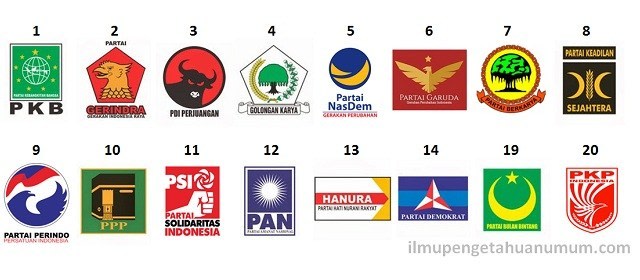Tentang KamiPedoman Media SiberKetentuan & Kebijakan PrivasiPanduan KomunitasPeringkat PenulisCara Menulis di kumparanInformasi Kerja SamaBantuanIklanKarir
2025 © PT Dynamo Media Network
Version 1.102.2
Konten dari Pengguna
Revitalizing Democracy and Political Parties
1 September 2020 12:39 WIB
Tulisan dari Boy Anugerah tidak mewakili pandangan dari redaksi kumparan

ADVERTISEMENT
Democracy and political parties are interrelating concepts. As a form of government and political system, democracy becomes the foundation and the determinant that affects the existence of political parties. Choosing and replacing politics in carrying out functions such as recruitment, regeneration, education, dissemination, to political communication are important factors that determine the weight of democracy in each country. The concepts of democracy and political parties are in a such close relationship that 'turbulence' in an area gives important significance to the others. Today, public dissatisfaction with the performance of political parties is getting stronger. This condition is surely paradoxical in retrospect the past history of parties in Indonesia.
ADVERTISEMENT
Unfettered from the clutch of the authoritarianism of the New Order 21 years ago, Indonesia feels the impact of the burgeon number of political parties. It is just that the blast does not have any significance on the performance of political parties in supporting the strengthening of democracy. One reality that explains the statement is that the authority of political parties in determining candidates for executive and legislative leaders is not positively correlated with the capacity of these candidates in carrying out their duties after elected in the election. Such condition occurred due to poor recruitment and regeneration systems in political parties. Political parties are more likely to recruit candidates for executive leaders and legislative members with strong financial and social capital.
ADVERTISEMENT
Another fact being the reason as to why the image of political parties worsens in the eyes of the public is the minimum performance of the executive and legislative candidates in performing their main duties and functions after being elected in the election. For example, based on data released by the Community Forum for the Care for the Indonesian Parliament, the performance of members of the House of Representative for the 2014-2019 period was considered very unsatisfactory. They were only able to ratify 84 Draft Laws with the composition of 49 Open Cumulative Draft Laws and 35 Drafts in National Legislation Program. This figure was far from the target set, even worse than the number of draft laws passed by the House in the previous period.
ADVERTISEMENT
The poor image of political parties is surely not a single condition. As discussed previously, democracy is the foundation and main determinant that affects the existence of political parties. Low public appreciation towards political parties is caused by the quality of democracy applied. It is interesting to study the 2019 Democracy Index released by The Economist Intelligence Unit (EIU). Based on the publication, Indonesia is categorized as a country with a flawed democracy. Indonesia is in 64th position out of 167 countries, far below Timor Leste (41) and Malaysia (43). There is something interesting about the release. Indonesia's political participation rate is relatively low (6.11), despite the fact that the public political participation in the 2019 Election rose sharply. Nearly 81 percent of the voters came to the polling stations and exercised their voting rights. This figure is the highest percentage in the history of election during reform era.
ADVERTISEMENT
The discrepancy between the results of the EIU release and the empirical reality in the country on political participation will unveil a fundamental problem concerning the quality and weight of democracy applied in Indonesia. The high rate of political participation in the 2019 elections was caused by a dual phenomenon, namely social and political divisions on the one hand, and the strengthening of identity politics on the other. In fact, these two factors are not very conducive to efforts to strengthen democracy, but they are able to 'drag' the people to flock to use their voting rights in the voting booths in the last 2019 Election. It is not too much to say that democracy embodied in this country is still at the procedural level, not yet to reach the true substance.
ADVERTISEMENT
Amendment to the constitution in 2001 that altered the election format of the president and vice president, regional heads, and members of parliament, from being elected as representatives by the parliament to being directly elected by the people, was initially expected to boost the weight of democracy. The people are given the freedom to choose candidates they consider to be competent in achieving their hopes for well-being and prosperity. But the reality does not always live up to the expectations. The high cost of candidacy in elections results in political parties recruiting candidates who are not really the people's choice. Candidates promoted by political parties are those 'thick' in capital or just popular in the eyes of the public, but not supported by good experience and competence.
ADVERTISEMENT
Looking at the current situation and condition, two solutions may be presented. The first is by revitalizing the format of democracy while the second is by modernizing political parties. The most urgent effort to revitalize democracy is to formulate a strategy to improve election institutions as the people's democracy festival by reforming the election system to be more participatory, conducive, and of course, effective and efficient. Civil liberties are another urgent matter to address. The current civil liberties are too much as nearly being trapped in mobocracy. But the situation should not be addressed by the government with repressive policies. This is the challenge in revitalizing democracy.
Revitalizing democracy will lead to efforts to modernize political parties. A more cost-friendly election system is expected to be a trigger for political parties to implement recruitment based more on the experience, competence, and commitment of the members. Civil liberties in the form of articulation and directed aggregation of interests becomes a medium for political parties to accommodate the people's aspirations in choosing candidates to be promoted in the Regional Head Elections and Legislative Elections. This can prevent the political parties from high-cost politics in the election since the candidates unquestionably come from their own cadres based on people's aspirations. Political parties will not only be more confident with the promoted candidates, but it also become quality assurance that those promoted do not commit corrupt practices if elected later.
ADVERTISEMENT

